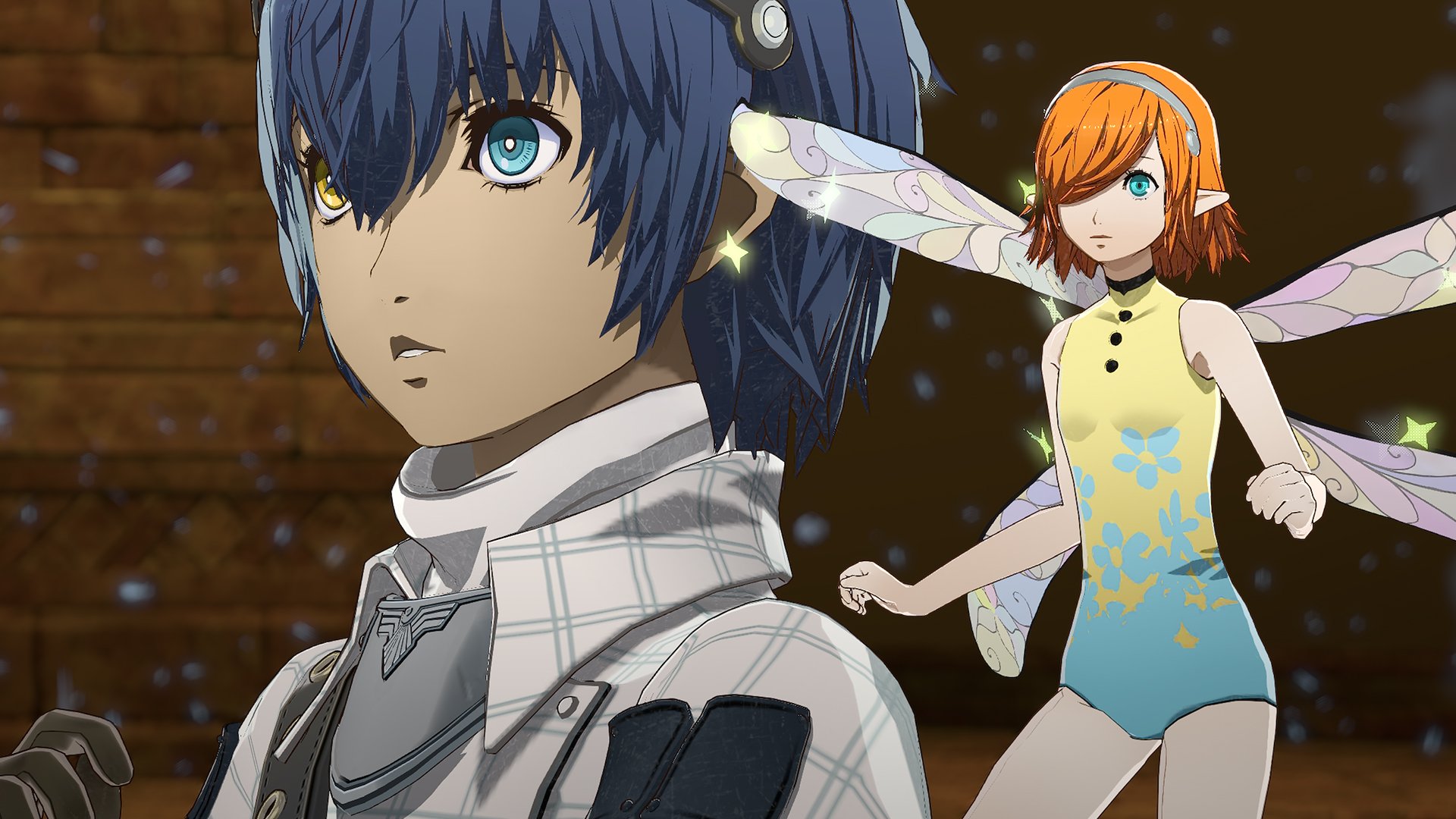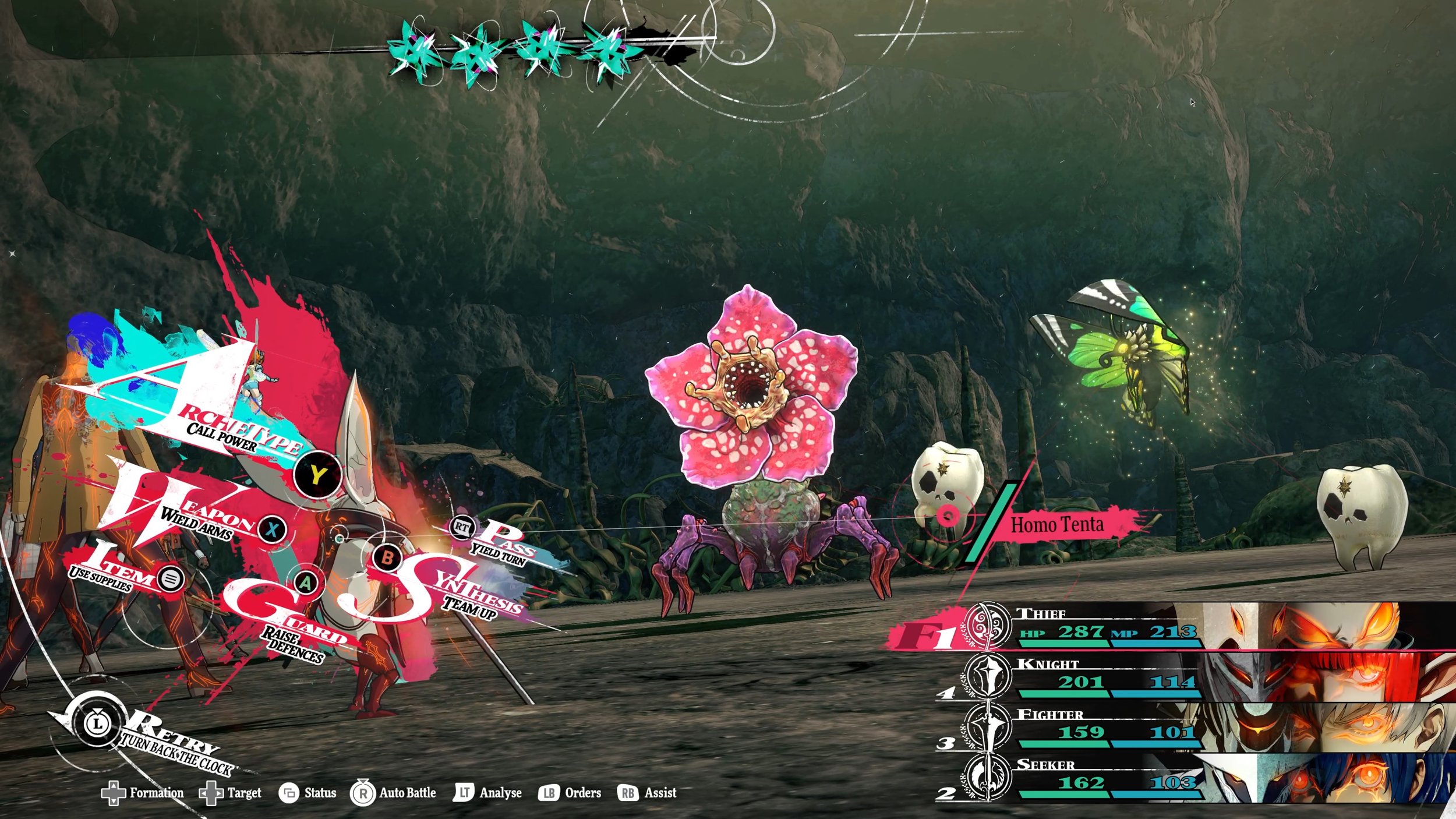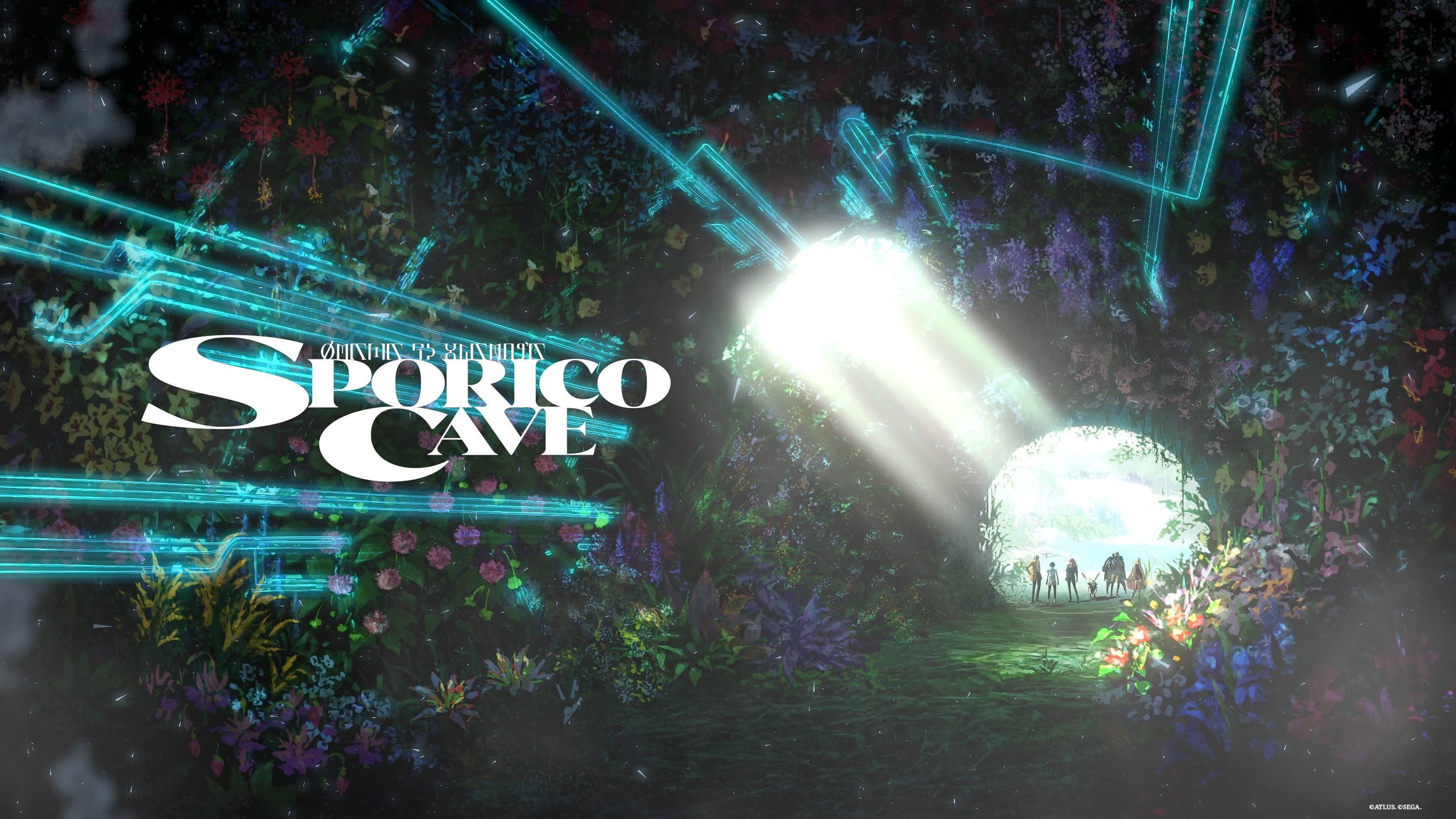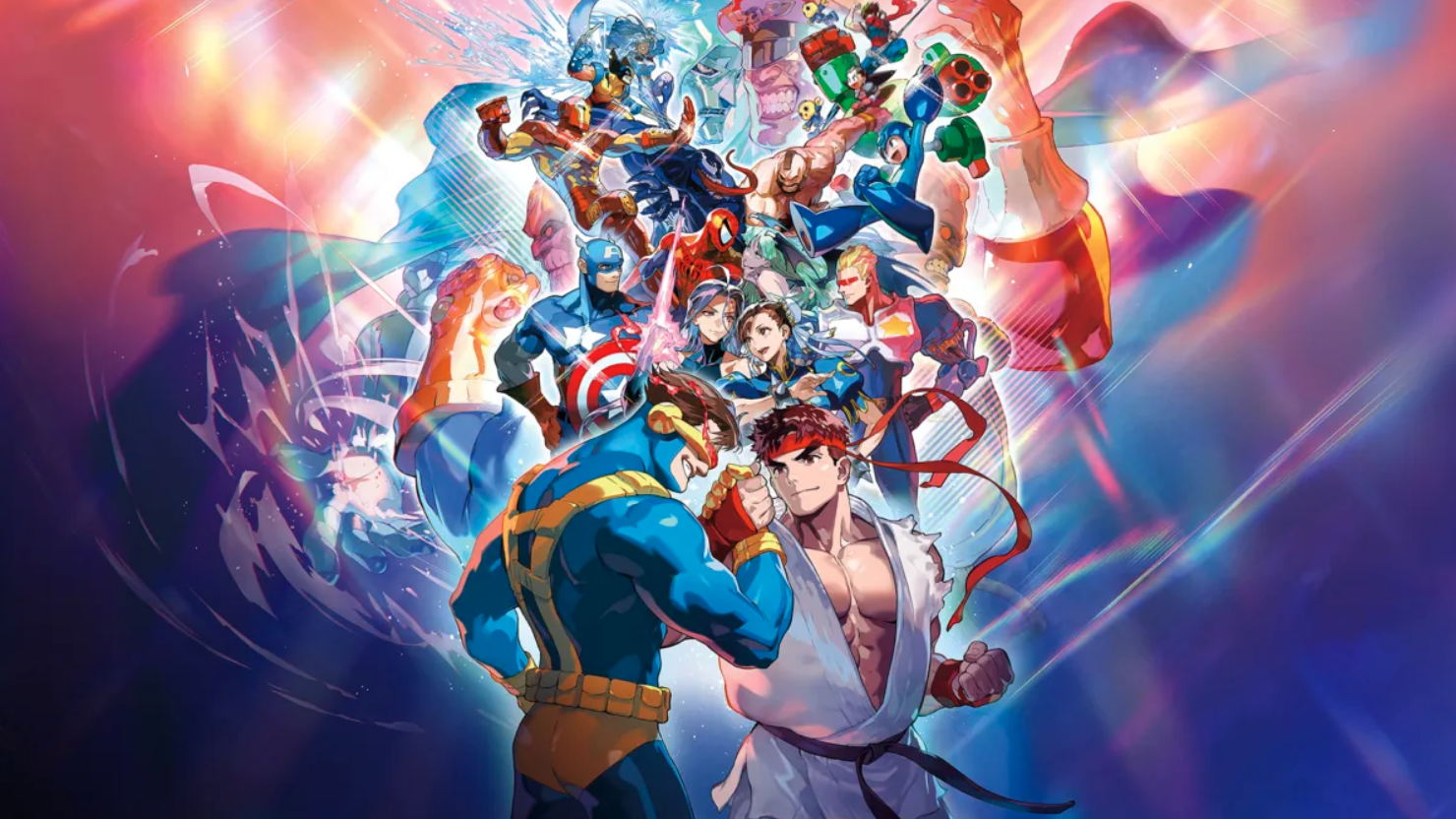Review-In-Progress | Metaphor: ReFantazio - A Roleplaying Epic Worth Experiencing
Hubris convinces commoners they can become kings, monsters can become men, and reviewers that they can finish an Atlus game before a deadline. It'll come as no surprise to Persona/SMT fans that Metaphor: ReFantazio is a big, immersive, ultra-long RPG. With over 50 hours played so far and undoubtedly many more to go, this will have to be a review-in-progress for now.
Thankfully, the structure of Metaphor shares a lot of the core characteristics of the Persona series, meaning the game is mechanically cyclical and I feel like I have a decent grasp on how it works. Unless there are some seriously left-field swings, I can't imagine anything to come that might completely recolour my opinion of the game, so let's start digging into it.
Metaphor: ReFantazio is a straightforward game for Persona fans to understand, and quite difficult to explain to newcomers. I'm going to assume you are the latter for now, just to make sure all readers are up to speed. Metaphor is a role-playing game from Studio Zero, a subsidiary of Atlus established shortly after the release of Persona 5. Simply put, these are the Persona people, and Metaphor is their new game.
As such, there is a lot of shared DNA between the franchises. A clunky comparison could be made to Dark Souls and Elden Ring; different games by the same developer with a lot of common ground. Where Persona is a modern RPG set in fictionalised versions of parts of Japan, Metaphor is closer to your traditional fantasy fare– there are dungeons, and there are dragons. There's also a flying palace with the face of a dead king underneath and giant vehicles with Evangelion legs. It's a whole thing, we'll get into it later.
Metaphor isn't a supernatural game about fighting demons from another reality, because these monsters are very much among us, both figuratively and literally. The premise is a classic fantasy set-up: the king has been murdered by an unscrupulous former general named Louis, causing a power vacuum that he himself intends to fill. Unbeknownst to Louis, this sets events in motion that lead to an open competition for the crown. Through the king's posthumous magical influence, whoever becomes the most popular individual with the people will become the next king.
This extremely sudden shift to democracy takes the kingdom of Euchronia by surprise, sparking a swathe of new political ideas and, shudder, discourse. Candidates begin coming out of the woodwork, each with their own vision for the future. Some want to create a military dictatorship, some want free booze for everyone. Some believe in putting the heads of the rich on pikes, some are simply running to promote their gauntlet runner business.
One such candidate is our protagonist, but their goals lie beyond winning the competition. In truth, the former king's son, who was thought to have been killed years ago, is alive, but stricken with a curse. Our job is to break the curse so the prince may take his rightful place on the throne.
The player character is an Elda, the most reviled of the many tribes that make up Euchronia. Tribalism is rampant in the kingdom, with tribes like the Roussainte and the Clemar being dominant in society, holding most of the powerful positions. The clans of Euchronia are defined by physical characteristics; Roussainte have long elf-like ears,, Clemar have faun-like horns, and Eugief look like Bat-people.
Physical characteristics plus tribalism equals, say it with me, “rampant systemic racism.” Hatred and bigotry abound in Euchronia, and Metaphor is not shy in its depiction. Paripus children lay dying in the streets of the capital for the crime of not being born into the right tribe. Taverns refuse service to individuals from the "lesser tribes" for fear of offending patrons of the dominant tribes. The protagonist himself faces plenty of this discrimination for being an Elda. His village was burned to the ground, and many of the characters you interact with regard him with everything from disgust to shock that an Elda would dare enter one of the region's cities.
In many ways, this racism mirrors the systems of oppression in our own world. While you will find some who fight against it or simply do not participate, the issue of discrimination is so ingrained in the culture that it becomes unavoidable. It is convenient for those in power to not address this injustice, as they are on the beneficial end of it. It is inconvenient for the masses to object, so they don't bother. Naturally, there are many in positions of power among the nobility and the church who gladly set aside their divinely ordained hatred of the lesser, should there be some profit in it.
All of this stands in stark contrast to the fantasy novel the protagonist carries around with them at all times. This book comes up a lot, with each of your compatriots taking their time to read it. The novel portrays a world similar to our own, a modern urban setting regarded as pure fantasy fiction by the characters. Each reading of the books describes a utopia, a world where differences are settled without violence, there is no discrimination and the people get a fair say in who rules the land.
This is clearly meant to be some version of our reality, but whether the message is that this is a world we could have, or that the creators imagine we already do is hard to say at this point in the story, as the world is only described through the eyes of characters who believe it a fantasy. If it is the latter, those are some seriously rose-tinted glasses to be looking through. I don't believe this is the case though, I think the message here is how close we could be to a fairer society if we didn't still cling to Dark Age ideas.
Metaphor depicts discrimination in its world much the way we see it today, but in a fantasy, medieval-esque setting. It then shows glimmers of a more modern world free from these ancient issues. I think the message here is clear; that we have moved so far forward in the last thousand years in so many ways, but in some ways we have stood completely still. If all aspects of our society advanced equally, these completely backwards ideas like racism and discrimination would be nothing more than footnotes in history books, and fodder for fantasy novels.
Aside from being a, well, metaphor, Metaphor is also a wonderful adventure through a watercolour-painted fantasy world. In order to achieve the ultimate goal of killing Count Louis to lift a curse on the thought-dead prince, the protagonist enters the Tournament for the Crown. This competition takes us all across the kingdom, exploring the world, completing challenges, and earning the support of the people. To do this, we need two things: a Gauntlet Runner and a crew.
The Gauntlet Runner is your transportation across the land. Imagine a blimp, but instead of flying it runs with giant bipedal legs. If you have seen a Gauntlet Runner and thought "Bits of that look like an Evangelion", you'd be right! This is your Final Fantasy airship, as well as your Cafe LeBlanc.
Indeed, much like the Persona games you will be amassing a group of followers to your party. These include Leon Strohl, the only surviving son of a noble family whose village was destroyed in a Human attack, and Hulkenberg, a knight who was once the protector of the prince. By the way, Humans are a distinct species in Metaphor, they are the most powerful monsters in the world. I cannot stress this enough, the game is titled Metaphor.
Gameplay is where the Persona skeleton shows through the most. You have a calendar system, with which you must make the best use of your days and complete tasks before deadlines. These generally involve a mixture of day-to-day tasks alongside important story dungeons that must be conquered before a specific date, or it's game over. Doing so involves defeating monsters in classic turn-based RPG battles.
Instead of Personas, your fighters employ the use of Archetypes. In the world of Metaphor, magic is made with the use of igniters, tools that create predetermined effects. Your character and those around them are special in this world, as they can use Archetypes to take on powerful new forms and use the innate magic within them.
Archetypes are your Persona equivalents but work very differently. Instead of collecting monsters and adding them to your collection, Archetypes work more like classes or a job system. Each character starts with their own Archetype which can be levelled up to learn new abilities, but they can also spec into new Archetypes, including the ones first learned by other characters.
Strohl awakens the Warrior Archetype, Hulkenberg awakens the Knight, but either can go on to adopt the Seeker, Mage, or even each other. Every character can learn and expand every Archetype, giving you full control and customisation of your party. How you unlock new Archetypes is through the Follower system.
This is the equivalent of the Social Links and Confidants of Persona games; important characters you meet become your Followers and improving your relationships with them will improve their related Archetype. Much like how you would grow the power of your Persona's Arcana, increasing your standing with your Followers is equally an important part of the narrative and how you become stronger in battle.
The battle system is also very familiar but with a couple of new twists. The basics of squad battles are much the same. Fights are turn-based affairs where you are striving to target the weaknesses of your enemies. Hitting an enemy weakness only uses half of a turn counter, essentially giving you an extra turn. Consistently target weaknesses and you can easily turn four turns into eight.
This is a crucial part of combat, as managing time and resources is the key to success. The microgame of efficiently defeating enemies in dungeons directly affects the macro game of using your limited time wisely. The fewer days it takes you to complete a dungeon, the more time you have to build your relationships and your attributes.
All of these elements come together to form the strategic layer that Persona games are famous for. There is so much satisfaction in completing a multi-day dungeon in a single day through the clever use of your health and mana resources, leaving your schedule open for the important things like hanging out with your friends or going bungee jumping.
Persona 5 added a stealth element to dungeon crawling, which thematically makes a lot of sense for that game. In Metaphor, there is an entirely new combat layer for players to master. While exploring dungeons, the game essentially becomes an action brawler. Much like how you could sneak attack enemies in P5, smacking a monster with your sword a few times will damage and stun them, giving you the upper hand in the ensuing turn-based battle.
Devil May Cry this is not, the action is a little clunky but not an unwelcome addition. It adds a fair amount of flavour and interactivity to dungeon exploration. Stunning enemies this way is crucial to getting through dungeons as unscathed as possible, allowing you to clear them using less of your limited in-game time. How easily you can stun an enemy depends on their level in relation to yours; tougher enemies are riskier to attack as, should they manage to hit you, they will get the advantage instead.
The other great advantage of this system is that, when you encounter enemies that are significantly weaker than you, you can defeat them without needing to engage in the turn-based system. Grinding through battle after battle can run the risk of being tedious, so this is a very clever change. The action sections are not very engaging in and of themselves, but they add elements of strategy and convenience that make it all worthwhile.
The dungeons themselves are expanded as well. At face value, they seem very similar to Persona dungeons, but there is much more variety here. First of all, dungeons range in scope in Metaphor. While you always have your important plot dungeons to tackle, there are plenty of side quests that take you to smaller, shorter dungeons. These often present their own unique challenges, and great opportunities to level up and loot some gear.
These side dungeons range from your classic tombs and towers to forests and open stretches of desert wasteland. It is certainly a breath of fresh air compared to the repetitive grind of Tartarus or Mementos. As you explore the world, you'll get plenty of requests to delve into these smaller dungeons, adding some world-building to your XP grind.
Then you have the main story dungeons. They work very similarly to Persona 5: you enter the dungeon and make progress but can leave at almost any time, returning later to continue your progress. Your enemy is the calendar, as you have a specific date by which you need to complete the dungeon or it's game over.
Where P5's dungeons basically all had the same objective, Metaphor changes it up between dungeons. The basics are still largely the same, you really just need to explore and make progress to find the end and defeat the big bad. Your objective and how you go about it can vary a lot, some dungeons are simple "find the bad guy and beat them", while others involve more stealth and planning, where your goal is infiltration rather than extermination.
This is mostly just flavour, there's nothing wrong with how Persona 5 justified its dungeons and Metaphor simply takes an extra step to make them a bit less contrived. Having completed a handful of these dungeons, I'm excited to see what's ahead rather than expecting more of the same, which is certainly a markable improvement.
Metaphor isn't without drawbacks, some of which are seemingly inherent to Studio Zero's design. The UI is gorgeously designed and animated, and quite flashy. Perhaps too flashy, in the way a flashbang is too flashy. The early hours of Metaphor can be a bit of an assault on the optic nerve, with so many elements popping up and moving around at a concerning pace. You do get used to it, more so by tuning out the fluff than by learning to make use of it all.
If your eyes don't take the worst of the beating, your ears just might. I've never been too bothered by the so-called "annoying" mascot characters these games often feature. I liked Morgana, and I like Gallica, your fairy companion in Metaphor. That said, when her combat voice lines repeat ad-nauseam to the point that she is actively talking over herself at times, it can start to grate. I know it's very much a staple of the genre and overall it isn't that big a deal, but for heaven's sake, I don't need the same play-by-play commentary on the fiftieth time I hit the same skeleton's weak point.
My last and most annoying gripe with the game is the rough edges of the difficulty. Now, I'm not saying the game is too hard or too easy, it has a plethora of difficulty options that ensure the game is playable for everyone, and I love that. I even admire those times when an enemy kicks your ass because you made a silly mistake, only for you to come back around armed with the lesson learned and right your wrong.
No, my issue is with those rare but notable instances where the game says it doesn't want to challenge you, it wants to frustrate you. Sometimes it makes sense, frustrating enemies in a time-limited section can be very effective.
When I have had to repeat a section multiple times because the enemies lock me in place as my squad haplessly flounders, or when a near-stalemate with a boss takes upwards of an hour to complete, that's when I stop having fun, and feeling engaged or challenged. In those scenarios, I'd take a thousand brutally hard bosses over being forced to sit still and feel like a fool.
None of the above comes close to ruining the game at all, but they do mar an otherwise excellent time. These quirks are not new to Atlus and Studio Zero games; long-time fans will likely come into Metaphor ready for everything it has to throw at them, while new fans may need some more time to find their feet. Metaphor is not a Persona game, but it carries the legacy in nearly all aspects.
With a few dozen hours played and a few dozen more to go, I can heartily recommend Metaphor to all. While it is true to Atlus form as a deep and potentially gruelling RPG dungeon crawler, it does take steps to welcome more players into the fold. The Archetype system favours breadth over depth, giving plenty of room to experiment without the frighteningly endless possibilities of Personas.
Metaphor does a great job of presenting and explaining itself, I think a brand new player who has never touched a Persona or SMT game will have an easier time getting to grips with the structure of Metaphor. It has many of the same systems as Persona 5 but does a better job of making their importance and function clear.
On top of that, Metaphor excels at everything Persona is known for. The cast of characters is fantastic, with an almost One Piece level of variety and intrigue. The music is beautifully arranged, with yet another banger of a battle theme. This one might take a little longer to warm up to than previous Persona battle themes, but nonetheless it is utterly engraved in my mind now.
The tone of the game is a bit more serious but deftly finds ways to weave in moments of levity and laughter. When the stoic knight Hulkenberg shows her lighter side, it is written and performed expertly and never betrays the depth of her conviction or duty. This is one of the best-written games I've played in years, far exceeding my already elevated expectations.
It can be difficult to review a game like Metaphor. There is simply not enough time in the world to fully experience a game like this even with a decent amount of time before launch. I fully expect to continue playing this game from now until it releases, and long after. Studio Zero are experts in crafting worlds and stories that draw you in and hold you tight, and Metaphor simply will not let me go. I'm not complaining about that.


















